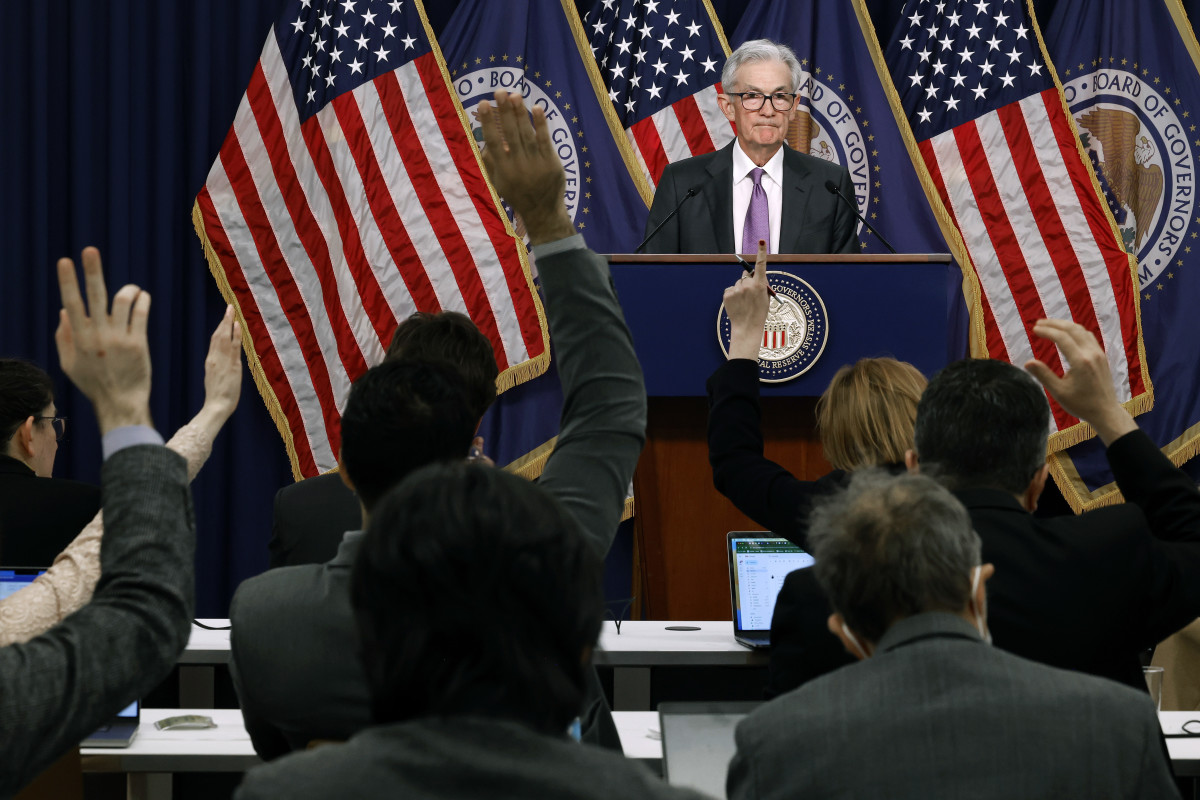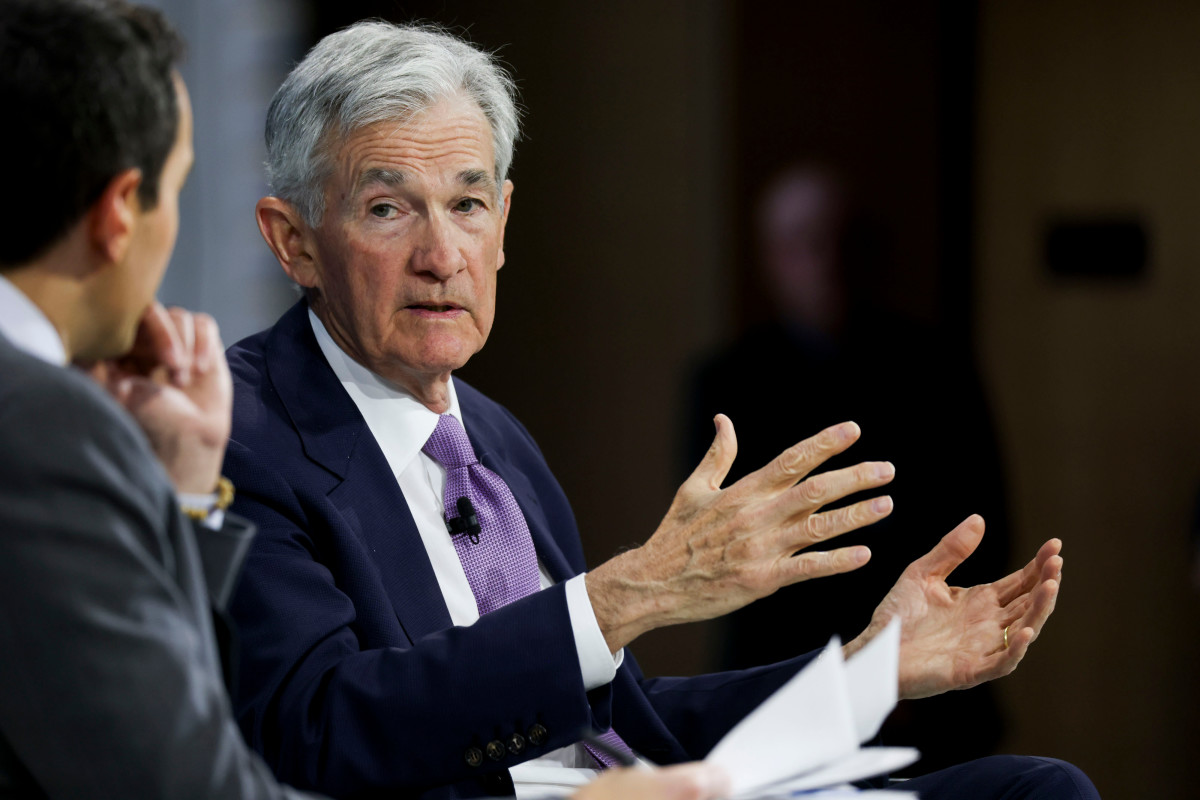
W.R Inge, the famous British author, academic and dean of St. Paul's Cathedral, once said there were no such things as rewards or punishments, only consequences.
Federal Reserve Chairman Jerome Powell had to be thinking the same thing when he delivered a sober assessment of the challenges the U.S. economy faces in the coming year following the central bank's unpopular rate cut Wednesday in Washington.
Don’t miss the move: SIGN UP for TheStreet’s FREE Daily newsletter
He noted the economy's resilient end-of-year strength, as well as forecasts for solid growth in 2025 and beyond, but nonetheless cautioned that inflation would remain sticky, the job market would continue to cool and policies expected from President-elect Donald Trump would add uncertainty to anyone's near-term forecasts.
At the same time, Powell noted, the policy-making Federal Open Market Committee was "discussing the ways in which tariff-driven inflation can affect the economy," offering at least a kernel of logic to the paradox of cutting rates while raising inflation forecasts.

"We have been moving sideways on 12-month inflation," Powell told reporters in Washington Wednesday. "As we go forward, we're going to want to be seeing further progress on bringing inflation down, and keeping a solid labor market."
In other words, the Fed chairman, knowing he would face criticism from Wall Street for halving the central bank's rate-cut forecasts, was adult enough to admit that actions have consequences.
Shutdown showdown over the U.S. budget
The same can hardly be said for the keepers of the government purse further down the street in Washington.
They spent most of the day, and a good portion of the evening, squabbling about who should take the blame for the failure of a short-term spending bill aimed at avoiding a government shutdown this weekend that should have been put to bed months ago.
House Speaker Mike Johnson, a close ally of President-elect Donald Trump, thought he had cut a deal with Democrats in Congress that would turning off the lights and provide billions in much-needed disaster relief funding while a longer-term spending plan gets hammered out.
Related: Donald Trump's plans will test Fed interest rate cut bets in 2025
Compromises generally require sacrifice, and while Johnson knew his pivot would likely anger Republicans eager for an end-of-term victory over their rivals across the aisle, he could at least argue that his deal was better than sending Federal government workers home just days before Christmas.
Enter Elon Musk, the president-elect's most influential adviser and the head of an ad-hoc committee of unelected officials determined to slash vast swaths of government spending that they don't seem to understand.
Musk weighs in on the spending deal
In a series of posts on his X social-media platform, where cost cuts have shredded more than three-quarters of its $44 billion purchase price, Musk railed against the deal, threatened the careers of any Republican who supports it, and shared misinformation from his millions of followers tied to its contents.
The president-elect, meanwhile, took that baton and ran with it, declaring himself "totally against" the spending package and demanding an increase to the suspended debt ceiling that he hoped would happen "under Biden's watch."
“If Democrats won’t cooperate on the debt ceiling now, what makes anyone think they would do it in June during our administration?" he said in a statement. "Let’s have this debate now.”
Related: US stocks rule as bull market bets highlight 'American exceptionalism'
Asking your opponents for a debt-ceiling increase — which is needed to accommodate the myriad tax breaks and trade and immigration policies that you promised during the campaign — suggests an inability to see consequences from actions.
It's also a tactic that allows Trump to reap the populist benefits of "getting control of spending in Washington" while putting the responsibility on others to achieve it.
The contrast with Powell's willingness to take the slings and arrows of Wall Street — and there are plenty of those to go around — is stark and constructive.
Investors return to table after rate-cut slump
Having an adult at the helm of arguably the economy's most important ship may sometimes be frustrating, but at least it's consistent.
Investors, who pummeled stocks and bonds in the wake of last night's Fed decision, lopping more than $1.8 trillion in value from the S&P 500, are already back at the table.
Stocks are expected to open higher, Treasury yields have eased, and the Fed once again has commanded the grudging respect of the global financial community.
"We believe 2025 will see another year of healthy stock market returns, but with more volatility as investors return to reading every Federal Reserve tea leave and as we start to parse policy action out of Washington, especially when it comes to tariffs and taxes," said Carol Schleif, chief market strategist at BMO Private Wealth.
More Economic Analysis:
- US stocks rule as bull market bets highlight 'American exceptionalism'
- Veteran analyst who predicted the S&P 500's rally unveils target for 2025
- Trump's plans will test Fed interest rate cut bets in 2025
On Capitol Hill, Speaker Johnson, who faces a tough selection battle to lead the new Congress next month, is scrambling for a Plan B that avoids a shutdown, solves the debt ceiling, brings Democrats on board, and arrives before the weekend deadline.
He might as well ask Santa Claus for a new pony while he's at it.
Trump, Musk and the rest of the DOGE caucus are busy congratulating themselves for torpedoing a deal they likely didn't read, definitely didn't negotiate, and won't be tagged with blame for if and when it fails.
"This was a good day for America," Musk said on X.
I'm not so sure.
Related: Veteran fund manager delivers alarming S&P 500 forecast







